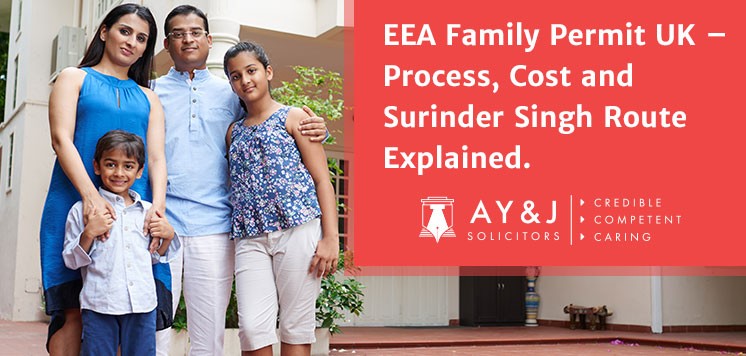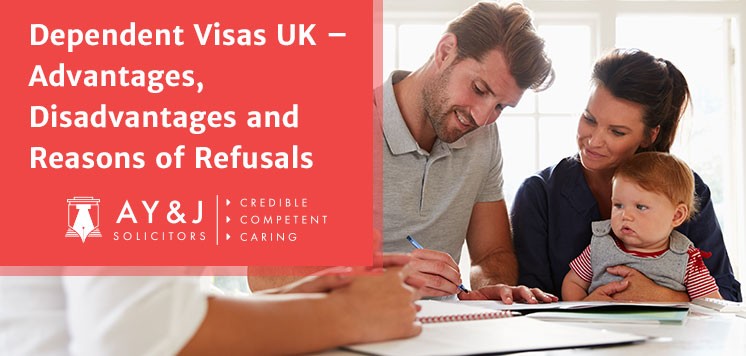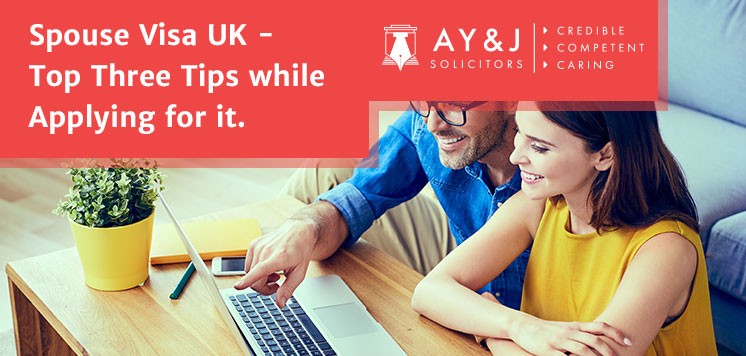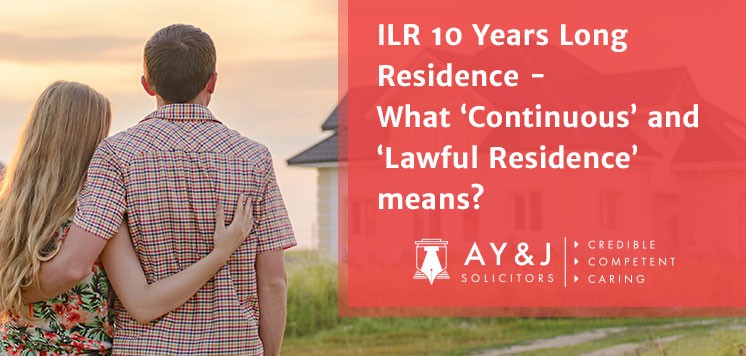EEA Family Permit helps non-EU family members of EEA nationals to enter in the UK. Many EEA nationals and their families are understandably nervous about their right to remain in the UK post-Brexit. If you are the family member of an EEA national, you may have heard of an EEA Family Permit. Having one is not mandatory; Article 5 of the Directive 2004/38/EC, also known as the Citizens’ Rights Directive, permits member states to require that family members of non-EEA nationals obtain entry visas before travelling to the host state. However, in instances where the family member does not obtain a visa, the host state must allow “every reasonable opportunity… to prove by other means that they are covered by the right of free movement and residence”.
Despite Article 5’s instruction, not having an EEA Family Permit can lead to problems entering the UK as it is possible that entry-clearance officer is unaware of the wider EU laws. Some carriers (sea and air) prevent family members of EU nationals from boarding if not holding a family permit. In addition, family members have been known to have been refused entry at the UK border if they cannot produce an EEA Family Permit.
Following the end of the implementation period on 31 December 2020, non EEA family members of a relevant EEA national may apply for either an EEA Family Permit or an EU Settlement Scheme (‘EUSS’ hereafter) Family Permit to travel to the UK. Upon the grant of the application, both permits would allow the non-EEA family members to travel, work and live in the UK. However, there are slight differences in the eligibility requirements and conditions conferred to you by the respective permit, and whether you need an EEA family permit or a EUSS family permit will depend on the circumstances of the relevant EEA national or qualifying British Citizen and yourself.
Additionally, different deadlines may also apply depending on your individual circumstances.
What is the Difference between the EEA Family Permit and the EU Settlement Scheme Family Permit?
The difference in the names of the EEA family permit and EUSS family permit reflect the source of law from which the permits are granted. EEA family permits are granted on the EEA Regulations 2016 which were in place before Brexit whereas EUSS was introduced by the British government in 2018 to allow EEA nationals who began residing in the UK before 11:00pm GMT, 31 December 2020 to continue residing in the UK with their family members.
Although, EEA family permit is still open for applications at the time of writing, their validity is coming to an end. From 30 June 2021 onwards, the Home Office will stop accepting applications for EEA family permit and any time left on permits which were granted before this date will also cease to be valid.
An EUSS family permit, however, will continue to be valid after 30 June 2021. There is also not a deadline on when your application under the EUSS will need to be submitted.
Do I need an EEA Family Permit or an EUSS Family Permit?
Where a person is eligible for both EEA Family Permit and EUSS Family Permit, they may apply for either in order to enter the UK until 30 June 2021.
From 23:00 GMT, 31 December 2020 to 30 June 2021, an application for an EEA family permit can be made by a family member or a durable partner of an EEA national, a family member with retained rights or derivative right to reside in the UK provided they were lawfully resident under the EEA Regulations in the UK before the end of the transition period and they have not yet been granted status under the EUSS.
If the relevant EEA national has already been granted pre-settled or settled status under the EUSS, their family member must then apply for a family permit under the EUSS instead. The family permit will be granted conditional upon meeting the specific eligibility and suitability requirements.
Applications Made under the ‘Surinder Singh’ Rights or Returning Qualifying British Citizens:
Under they EEA Regulations, non-EEA family members of a British Citizen who has established lawful residence in an EEA Member State by exercising treaty rights may rely on their rights as the family member of an EEA national. This is commonly known as the Surinder Singh route.
Following the end of the transition period, only those who have previously been granted a family permit under the EEA Regulation may apply for an EEA Family Permit to re-enter the UK to either join or accompany the relevant British Citizen within 6 months of their application. At the time of application, the relevant qualifying British Citizen must also not hold status under the EUSS.
If, at the time of application, the non-EEA family member was not previously granted leave as the family member of the qualifying British Citizen under the EEA Regulations, then they must apply for a family permit under the EUSS in order to join or accompany the qualifying British Citizen in the UK. To qualify under this route, the applicant and the qualifying British Citizen must return to the UK by 23:00 GMT 29 March 2022.
What is the Process of Obtaining an EEA Family Permit or an EUSS Family Permit?
There is a two-stage procedure for family members of EEA nationals who wish to come and live in the UK. The first step is to apply for an EEA Family Permit or from outside of the UK, which provides a form of entry clearance valid for 6 months. Once you arrive in the country, you can apply for pre-settled status under the EUSS. Once the application is submitted, you will be required to attend a biometric appointment to give your fingerprints and photograph. Upon the grant of your application, you will be issued a biometric residence permit to evidence your status in the UK. It is important to note that there is no standard processing time for this application and there is no provision for same-day service via the Premium Service Centres. The Home Office usually aims to process all immigration application within 6 months.
It is also important to note an EEA Family Permit can be revoked if:
- The EEA national who is your family member ceases to have the right to stay in the UK
- You cease to become a family member of the EEA national
- Revocation is justified on permitted grounds of public policy, public security, or public health
If any of these situations suddenly apply to you, it is crucial you seek legal advice immediately to ensure you can remain in the country legally. Options such as ‘retained right of residence’ may be open to you.
How Much Does it Cost to Get an EEA Family Permit?
One of the advantages of an EEA Family Permit is there is no application fee. In addition, it is valid for six months and you can travel freely in and out of the country during that time. After this period, you can apply for an EEA Residence Card
Client says, “A Y & J solicitors were an absolute God-send. They supported me through each painstaking step of my application process. I rapidly became assured that I was in good hands and found their advice to be clear, calm and sound.
What is the Surinder Singh Route?
After the toughening up of the Immigration Rules in 2012 and the introduction of the Minimum Income Threshold for UK Spouse/Unmarried Partner and Fiancé Visa, many EEA nationals now take advantage provided by EU law, known as the Surinder Singh route.
The rule comes from the case of R v. Immigration Appeal Tribunal and Surinder Singh [1992] 3 CMLR 358. In essence, it states that the right in European Union law for a person to move from one Member State to another must include a right to return, otherwise a person may be reluctant to leave their home Member State in the first place. This is a right under European Law. Therefore, EU law, not the law of the member state, applies to family members of the EU citizen exercising their Treaty rights.
Following the case of Surinder Singh, O and B v The Netherlands clarified the Surinder Singh route. To qualify, the following must apply:
- the applicants must have been genuinely resident in the other Member State for at least three months
- during that period, family life must have been established or strengthened
- abuse of the route is not permitted
Currently, regulation 9 of the Immigration (European Economic Area) Regulations 2016 sets out how the UK government interprets the Surinder Singh rule. Significantly, to qualify, the ‘centre of the British citizen’s life’ must have been transferred to the host Member State. There is no mention of this requirement in O and B v The Netherlands, it was created by the British Government to restrict the number of families able to bypass the UK Spouse Visa requirements and enter the UK via EU laws.
As you can see, the Surinder Singh route is complex, and couples could easily fail to satisfy the ‘centre of life’ test if they do not receive specialist legal advice.
In summary
With the end of the transition period, family members of EEA nationals have a right to be concerned regarding their legal status to remain in the country. EEA national including British should also be worried about how their non-EU dependents under the EU Law will be affected. We have helped many families and brought successful results.
For assistance with all matters relating to EEA Family Permits and Permanent Residence Cards, talk to one of our team for friendly, practical, accurate advice.
A Y & J Solicitors are specialists in immigration law based in central London. If you would like to have more information, please contact us at contact@ayjsolicitors.com or call +44 20 7404 7933.
Disclaimer: No material/information provided on this website should be construed as legal advice. Readers should seek an appropriate professional advice for their immigration matters.








